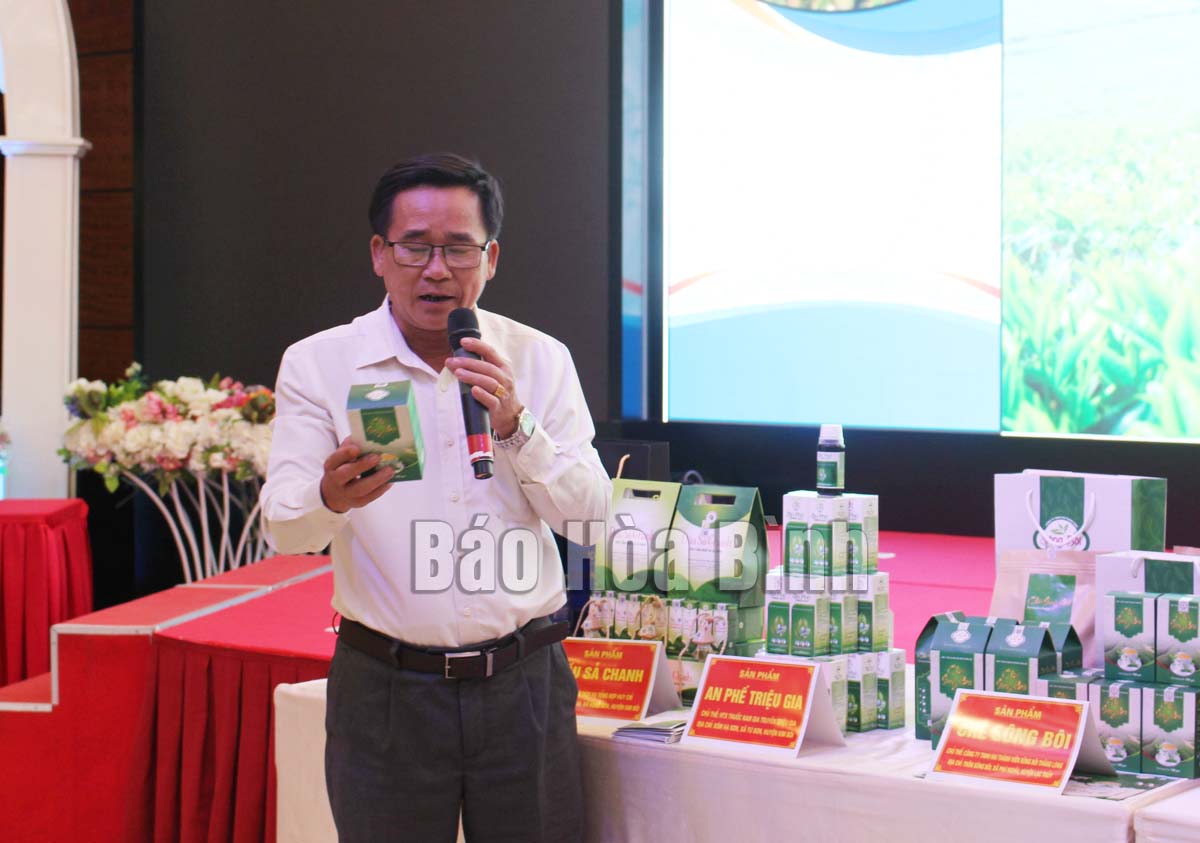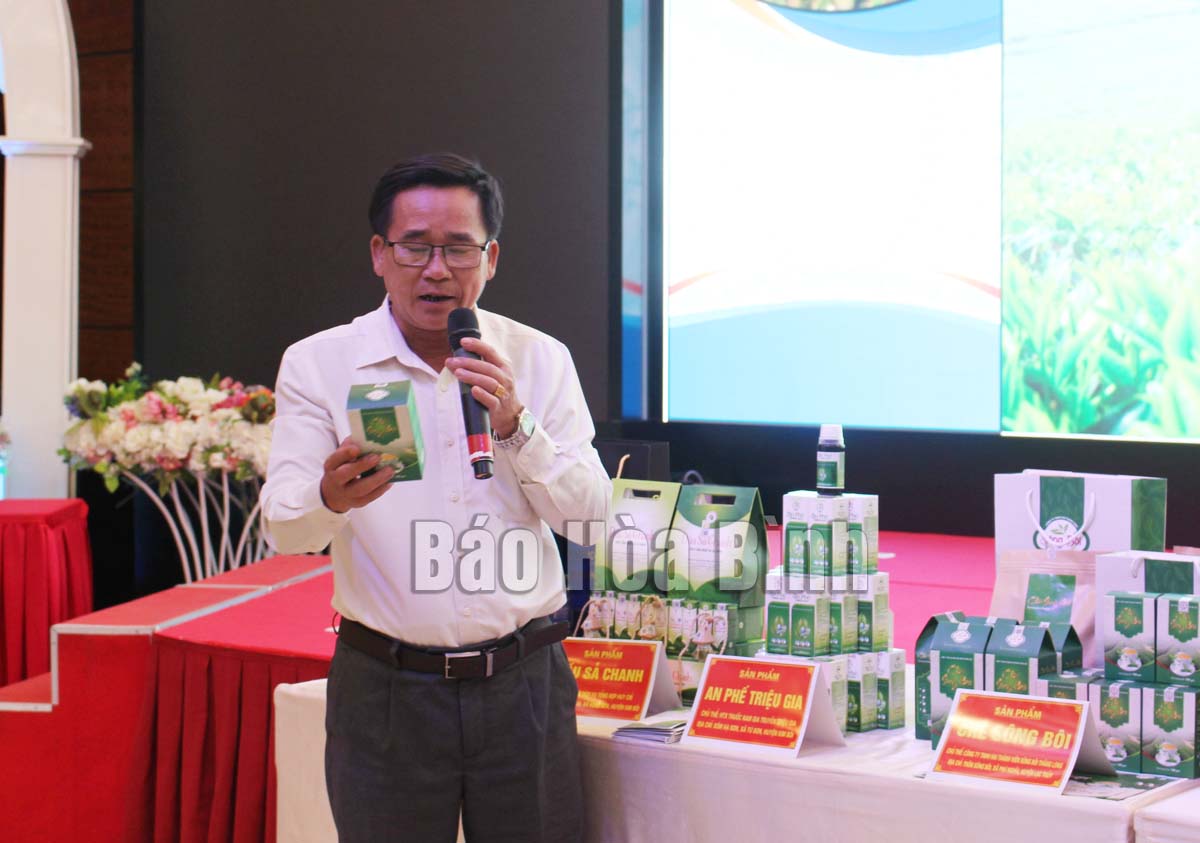
(HBO) – Lac Thuy district has had 10 products meeting provincial standards of the "One Commune, One Product” (OCOP) programme, including two rated four stars and eight rated three stars. In the recent past, aside from improving product quality, it has boosted selling local OCOP products online to reach more buyers.
The Boi River tea is one of the six OCOP products of Lac Thuy district sold on the postmart.vn platform.
So far, six OCOP products of Lac Thuy have been sold on the e-commerce platform of postmart.vn, namely the Boi River tea of the Song Boi Two-Member Co. Ltd, the Chung Huong orange of the Chuong Huong garden in Phu Nghia commune, the Dong Bong custard apple of the Dong Tam agricultural service cooperative, the red-flesh dragon fruit of the Thanh Ha agricultural service cooperative, and the Ngoc Han chicken egg of the Nam Son cooperative.
Selling OCOP products on e-commerce websites is a move to help local enterprises, cooperatives, and farmers to step up advertising, boost sale, seek partners, and reduce dependence on intermediary traders. Meanwhile, consumers can purchase original specialities with high quality and reasonable prices.
In the time ahead, Lac Thuy district will continue coordinating with the Vietnam Post branch in Hoa Binh province to put up the four remaining OCOP products for sale on postmart.vn, namely the Khoan Du bee honey of the Khoan Du beekeeping cooperative, the honeydew melon of the Vietnam Organic Farm JSC, the Lac Thuy orange of the ThuLand garden in Phu Thanh commune, and the orange of the Vu Duy Tan garden in Thong Nhat commune./.
According to data from the Hoa Binh Provincial Party Committee, the industrial production index for the first six months of 2025 is estimated to have increased by 20% compared to the same period last year. This marks the highest year-on-year growth rate for this period since 2020.
In the first six months of 2025, Hoa Binh province’s export turnover was estimated at 1.145 billion USD, marking an 18.11% increase compared to the same period in 2024. Import turnover was estimated at $ 804 million, a 17.15% increase, which helped the province maintain a positive trade balance.
The lives of the ethnic minority farmers in Tan Lac district have gradually improved thanks to the new directions in agricultural production. This is a testament to the collective strength fostered through the professional associations and groups implemented by various levels of the district’s Farmers’ Union.
With the motto the "product quality comes first,” after nearly one year of establishment and operation, Muong village’s Clean Food Agricultural and Commercial Cooperative, located in Cau Hamlet, Hung Son Commune (Kim Boi district), has launched reputable, high-quality agricultural products to the market that are well-received by consumers. The products such as Muong village’s pork sausage, salt-cured chicken, and salt-cured pork hocks have gradually carved out a place in the market and they are on the path to obtaining the OCOP certification.
In the past, the phrase "bumper harvest, rock-bottom prices" was a familiar refrain for Vietnamese farmers engaged in fragmented, small-scale agriculture. But today, a new spirit is emerging across rural areas of Hoa Binh province - one of collaboration, organisation, and collective economic models that provide a stable foundation for production.
Maintaining growing area codes and packing facility codes in accordance with regulations is a mandatory requirement for agricultural products to be eligible for export. Recently, the Department of Agriculture and Environment of Hoa Binh province has intensified technical supervision of designated farming areas and packing facilities to safeguard the "green passport" that enables its products to access international markets.



